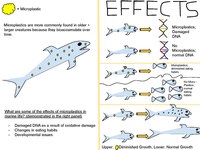
Photo from wikipedia
Several countries or regions have issued bans on microplastic pollution. This paper conducted a textual analysis on the provisions of the referenced countries or regions, and it was noticed that… Click to show full abstract
Several countries or regions have issued bans on microplastic pollution. This paper conducted a textual analysis on the provisions of the referenced countries or regions, and it was noticed that most of the existing bans only regulate and control microbeads instead of legal rules regarding all types of marine microplastic pollution. Existing international conventions can solve some of the problems of marine microplastic pollution, but they cannot solve all of them. Scientific uncertainty of marine microplastic pollution leads to the dilemma of future legislation. Specifically, based on the theory of legal norms, there are several issues faced by future international uniform legislation. The basic elements of legal rules are the hypothesis, disposition, and sanctions. At present, the scientific uncertainty of marine microplastic pollution cannot establish the three elements (hypothesis, disposition, and sanctions) of legal rules, so the existing bans in various countries can only target microbeads, and it is difficult to regulate other types of marine microplastic pollution. Consequently, we conclude that the time for comprehensive legislation on marine microplastics pollution is not yet ripe.
Journal Title: International Journal of Environmental Research and Public Health
Year Published: 2022
Link to full text (if available)
Share on Social Media: Sign Up to like & get
recommendations!